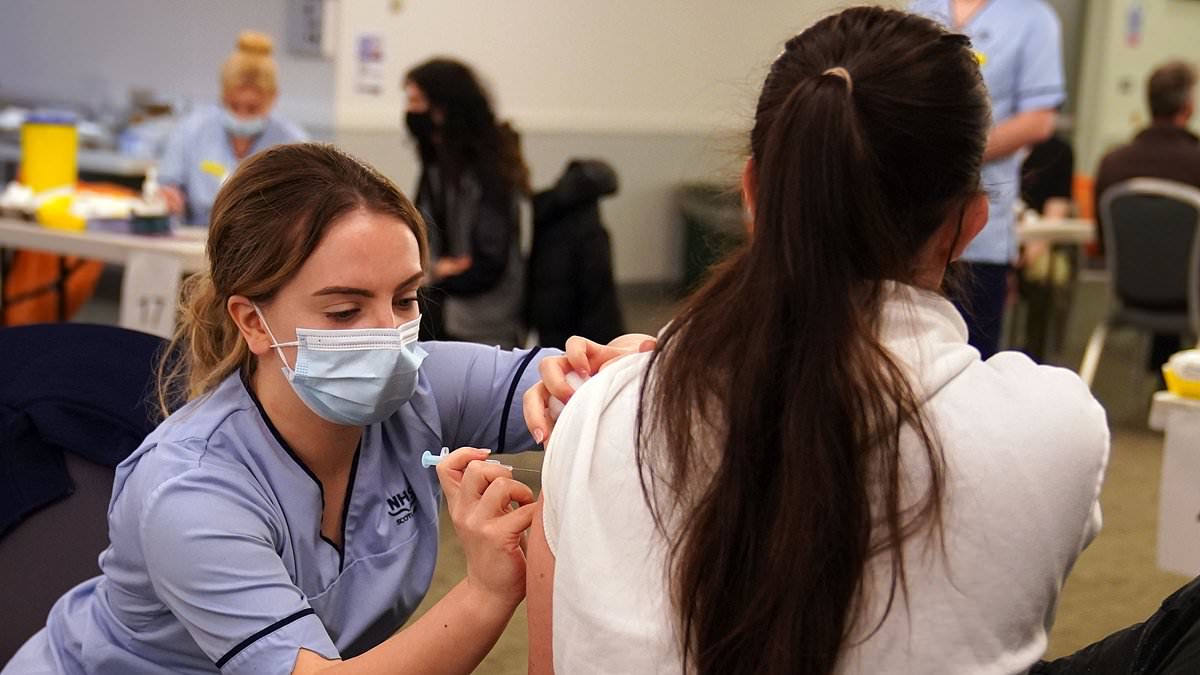Thousands of Scots with long-term health conditions are at risk of a summer covid spike because they are unvaccinated.
Public health experts say uptake of covid boosters has slumped since the peak of the pandemic and now fewer than half of some patients have had a recent vaccine.
It comes as covid cases have surged this summer.
The number of weekly confirmed cases rose to 1,153 at the end of June, up from 441 at the start of the month.
But the real number will be far higher as there is no longer a requirement for people to test themselves for covid or report their test results.
Now research by Public Health Scotland has revealed fewer people with long term health conditions were vaccinated this winter.
Experts warned one reason for declining uptake is the public being told to ‘learn to live with the virus’, but those with long-term conditions remain at a higher risk of complications.
Dr Ben Kasstan-Dabush, Assistant Professor in Medical Anthropology at the London School of Hygiene & Tropical Medicine said: ‘Declining levels of COVID-19 vaccination in the at-risk cohort in Scotland is arguably a reflection of UK residents being told to learn to live with the virus.
‘Yet, people under the age of 65 living with long-term conditions still have a higher risk of severe illness, hospitalisation and death from catching COVID-19.
‘To tackle the problem, we must ensure that primary and specialist clinical teams consistently recommend vaccination and convey the importance of vaccination for managing long-term conditions.
‘All staff dealing with patients with long-term conditions should get the training they need to be able to confidently handle questions about vaccines and vaccination.’
Those at risk of complications from covid, such as people with chronic obstructive pulmonary disease, heart conditions and other long-term illnesses are given boosters.
During the peak of the pandemic, when the vaccines were first launched, uptake in these vulnerable groups was almost 100 per cent.
But the PHS analysis of five major long-term conditions shows it has halved, and the health watchdog says around 130,000 Scots with these long-term conditions remain unvaccinated.
The spring vaccine programme ended on 30 June 2024, though some health boards may be offering catch-up drop-in clinics.
The PHS research concluded a total of around 127,000 Scots in the five at-risk groups are unvaccinated. Michelle Falconer, Nurse Consultant at Public Health Scotland said: ‘Vaccination is the best way to protect yourself and others from severe COVID-19.
‘If you are eligible for a COVID-19 vaccine, please come forward when invited and take the opportunity to bolster your protection.’
Covid cases are rising again following a number of global events including the Euros where a number of Tartan Army fans tested positive after falling ill when they came home.
People with long term health conditions are offered covid vaccines because they are more at risk of complications, such as breathing difficulties, heart or kidney problems or risk of another stroke.
Among those with COPD, vaccine uptake fell from 99.9 per cent in 2021 to 44 per cent by winter 2023-24.
For those with chronic kidney disease uptake fell from 99.9 per cent in 2021 to 56.4 per cent in 2023-24.
It has also slumped from similarly high levels earlier in the pandemic to 44.5 per cent in those with heart disease, to 48 per cent in people who have previously had a stroke and to 56.4 per cent in those with chronic kidney disease.
For those with atrial fibrillation, a heart condition that causes an irregular heart rate, uptake fell from almost 100 per cent to 47.7 per cent.
■ Click here to visit the Scotland home page for the latest news and sport
